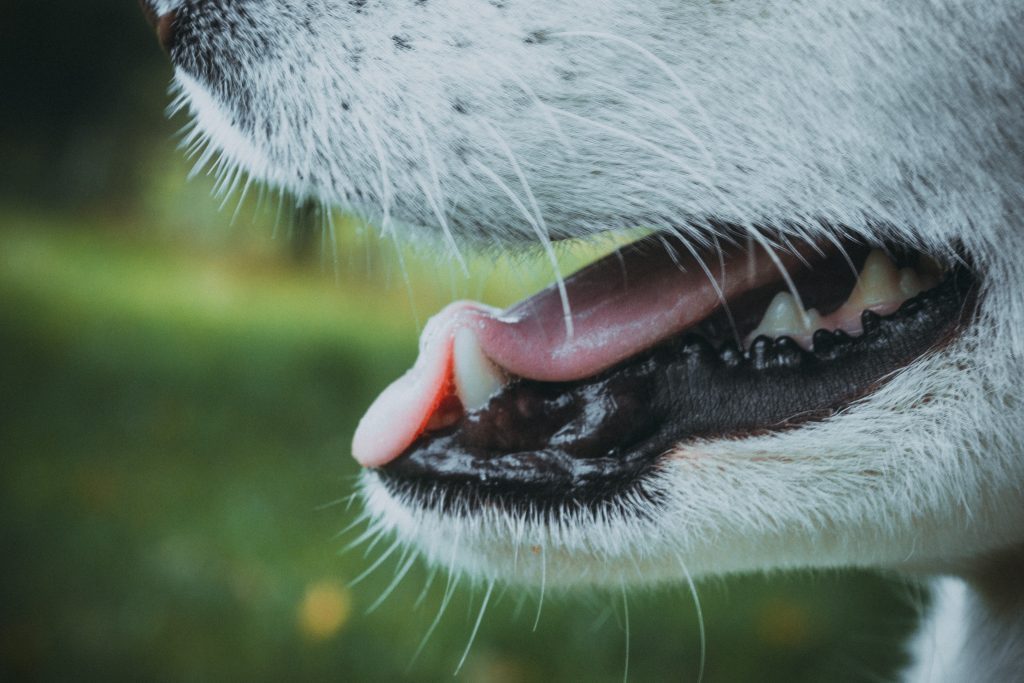Have you looked in your dog’s mouth lately? Good owners often do and it’s assumed we’re just checking on teeth and gums – but there’s something else we should be mindful of… Epulides
Epulides are benign growths found in the mouth, which do not come from the teeth. They appear early as a small mass often sprouting from the gum on a small stalk.
As there are no visible outward signs it is important that you check your dog’s mouth on a regular basis, a good hygiene practice anyway.
Symptoms associated with an Epulides are
- excessive salivation,
- bad breath,
- difficulty eating,
- blood from the mouth.
- enlargement of the lymph nodes in the neck
There is no known cause and an Epulis can occur in many dog breeds, most often in brachycephalic breeds. Epulides originate from the ligament that attaches the tooth to the jaw bone. They do not generally invade into the underlying bone. They appear similar to focal gingival hyperplasia. (overgrowths). They are usually slow growing and firm and found in the front portion of the upper jaw, directly under the nose, although I recall one of my Rottweiler bitches, at 4 y.o. had a little grey one behind her bottom teeth that looked like a sponge; I just used a homeopathic remedy and it disappeared with no more re-appearing.
Middle-aged and older dogs (around 7 y.o.) get epulides more often than young dogs. The overgrowths may be attributed to a reaction to trauma, such as a tooth rubbing on the gum in brachycephalic mouths, but I wonder if there is a ‘tendency’ in some dogs, similar to a wart tendency like the little pink ones found in the Bichon.
Some epulides arise from the bone tissue and if not found in time can required some surgical attention; like most other growths – found in time they are not a big problem.
Don’t be in a rush to have them operated on; many of them spontaneously regress and disappear over a few months but I like to help them on their way.
Treatment:
Administer once a day for 2 months.
A fibrous tumour – Calc Fluor 30c
In fat young dogs – Calc Carb 30 c
If arising from the bone, hard to touch – Heckla Lava 30c with Calc fluor 30c
If arising from the mucous membranes, they are soft – Thuja
If they develop from the periosteum and they feel relatively hard – Symphytum
